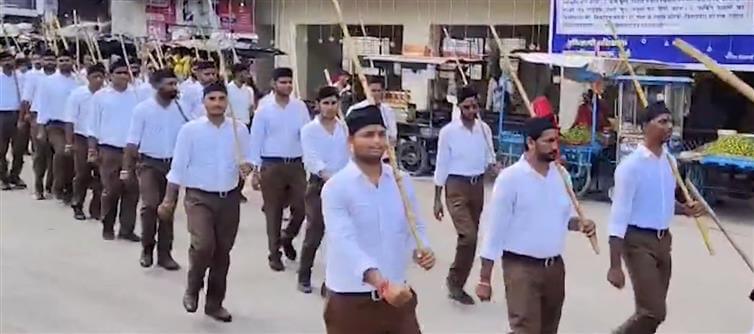
The Rashtriya Swayamsevak Sangh (RSS), today flaunted as the “nation’s backbone” by its supporters, has a glaring hole in its history—its total absence from India’s independence struggle.
Founded in 1925 by K.B. Hedgewar, the RSS projected itself as a cultural and social organization focused on “Hindu unity.” But when india bled, when lakhs courted arrest, when gandhi, Nehru, Patel, Subhas Bose, and countless freedom fighters risked death, prison, and bullets—the RSS was missing in action.
Let’s cut through the propaganda and lay bare the seven savage truths about RSS’s non-role in India’s freedom.
1. Quit india Movement (1942): india Rose, RSS Hid
When gandhi called for “Do or Die,” millions joined protests, braved lathis, and went to jail. The RSS? Its chief, M.S. Golwalkar, instructed members to stay away. The archives are clear: RSS did not organize, did not protest, did not sacrifice.
2. Civil Disobedience Movement (1930s): Silence from RSS
As indians broke salt laws, boycotted british goods, and faced imprisonment, RSS shakhas carried on with drills and uniforms. No jail bharo andolan, no sacrifices, no martyrs. The RSS ideology was simple: avoid confrontation, preserve the cadre, let others fight.
3. Hedgewar the Individual vs. RSS the Organization
Hedgewar, before founding RSS, briefly participated in Congress-led protests. But once RSS was born, he discouraged political involvement. Even his arrest in 1931 was personal, not organizational. The RSS never stood up collectively for freedom.
4. Apolitical or Opportunistic?
RSS defends itself by claiming it was “cultural, not political.” But that’s a convenient excuse. Revolutionaries, peasants, workers, students—all risked their lives, regardless of background. To sit out the nation’s fight for survival and later claim patriotism reeks of opportunism.
5. British Intelligence Records: RSS Was No Threat
The british administration kept close tabs on revolutionaries. Guess who they never feared? The RSS. Colonial records show the organization was viewed as harmless, focused on drills, not dissent. When the empire calls you “no threat,” it means you didn’t fight them.
6. Contrast With Real Fighters
From Gandhi’s satyagraha to Bose’s INA, from Bhagat Singh to Ambedkar’s social justice struggle—leaders risked life and liberty. The RSS? Sticks, uniforms, and internal discipline. They wanted freedom delivered, without dirtying their hands.
7. Post-1947: Loudest in Claim, Quietest in Sacrifice
The bitter irony: After independence, RSS cadres claimed to be the “truest patriots.” Yet history books show their actual record—no Quit india, no jail terms, no martyrs, no bullets taken, no gallows climbed. Just silence, excuses, and survival.
🩸 Final Punchline
The RSS didn’t build the nation—it watched from the sidelines while others bled for it. Today’s loud claims of patriotism can’t erase the truth: in India’s hardest fight, the RSS contribution was absolute zero.




 click and follow Indiaherald WhatsApp channel
click and follow Indiaherald WhatsApp channel